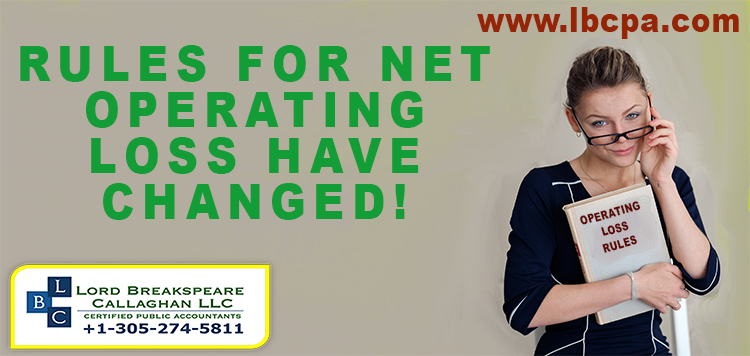LBCPA News 
Click here to go back
KEEPING UP WITH THE NET OPERATING LOSS RULES

When a trade or business’s deductible expenses exceed its income, a net operating loss (NOL) generally occurs. When filing your 2019 income tax return, you might find that your business has an NOL — and you may be able to turn it to your tax advantage. But the rules applying to NOLs have changed and changed again. Let’s review.
Pre-TCJA
Before 2017’s Tax Cuts and Jobs Act (TCJA), when a business incurred an NOL, the loss could be carried back up to two years. Any remaining amount could then be carried forward up to 20 years.
A carryback generates an immediate tax refund, boosting cash flow. A carryforward allows the company to apply the NOL to future years when its tax rate may be higher.
Post-TCJA
The changes made under the TCJA to the tax treatment of NOLs generally weren’t favorable to taxpayers. According to those rules, for NOLs arising in tax years ending after December 31, 2017, most businesses couldn’t carry back a qualifying NOL.
This was especially detrimental to trades or businesses that had been operating for only a few years. They tend to generate NOLs in those early years and greatly benefit from the cash-flow boost of a carryback. On the plus side, the TCJA allowed NOLs to be carried forward indefinitely, as opposed to the previous 20-year limit.
For NOLs arising in tax years beginning after December 31, 2017, the TCJA also stipulated that an NOL carryforward generally can’t be used to shelter more than 80% of taxable income in the carryforward year. (Under previous law, generally up to 100% could be sheltered.)
COVID-19 response
The NOL rules were changed yet again under the Coronavirus Aid, Relief, and Economic Security (CARES) Act. For NOLs arising in tax years beginning in 2018 through 2020, taxpayers are now eligible to carry back the NOLs to the previous five tax years. You may be able to file amended returns for carryback years to receive a tax refund now.
The CARES Act also modifies the treatment of NOL carryforwards. For tax years beginning before 2021, taxpayers can now potentially claim an NOL deduction equal to 100% of taxable income (rather than the 80% limitation under the TCJA) for prior-year NOLs carried forward into those years. For tax years beginning after 2020, taxpayers may be eligible for a 100% deduction for carryforwards of NOLs arising in tax years before 2018 plus a deduction equal to the lesser of 1) 100% of NOL carryforwards from post-2017 tax years, or 2) 80% of remaining taxable income (if any) after deducting NOL carryforwards from pre-2018 tax years.
Complicated rules
The NOL rules have always been complicated and multiple law changes have complicated them further. It’s also possible there could be more tax law changes this year affecting NOLs. Please contact us for further clarification and more information.
If you have any questions regarding accounting, domestic taxation, essential business accounting, international taxation, IRS representation, U.S. tax implications of Real Estate transactions or financial statements, please give us a call at 305-274-5811.
Source: Thomson Reuters






